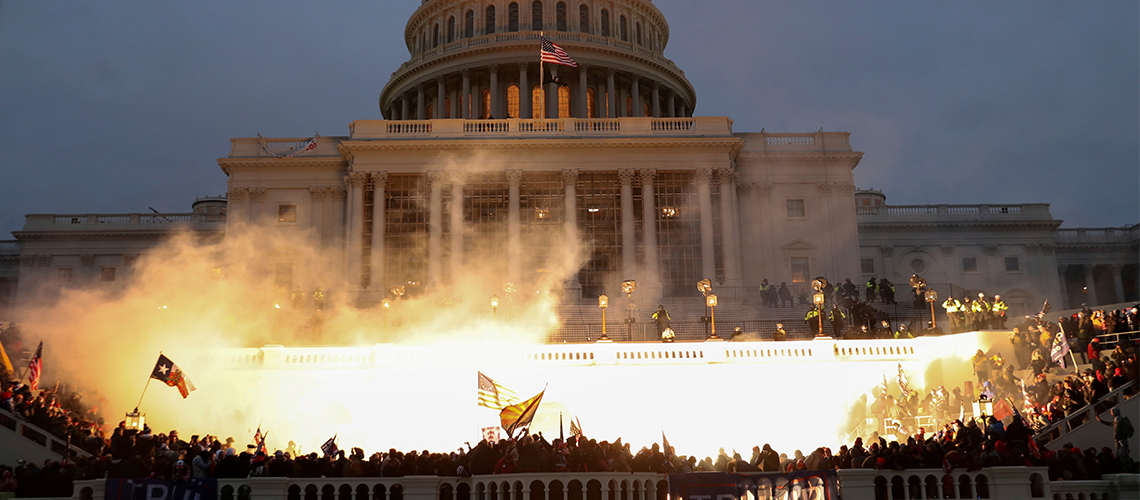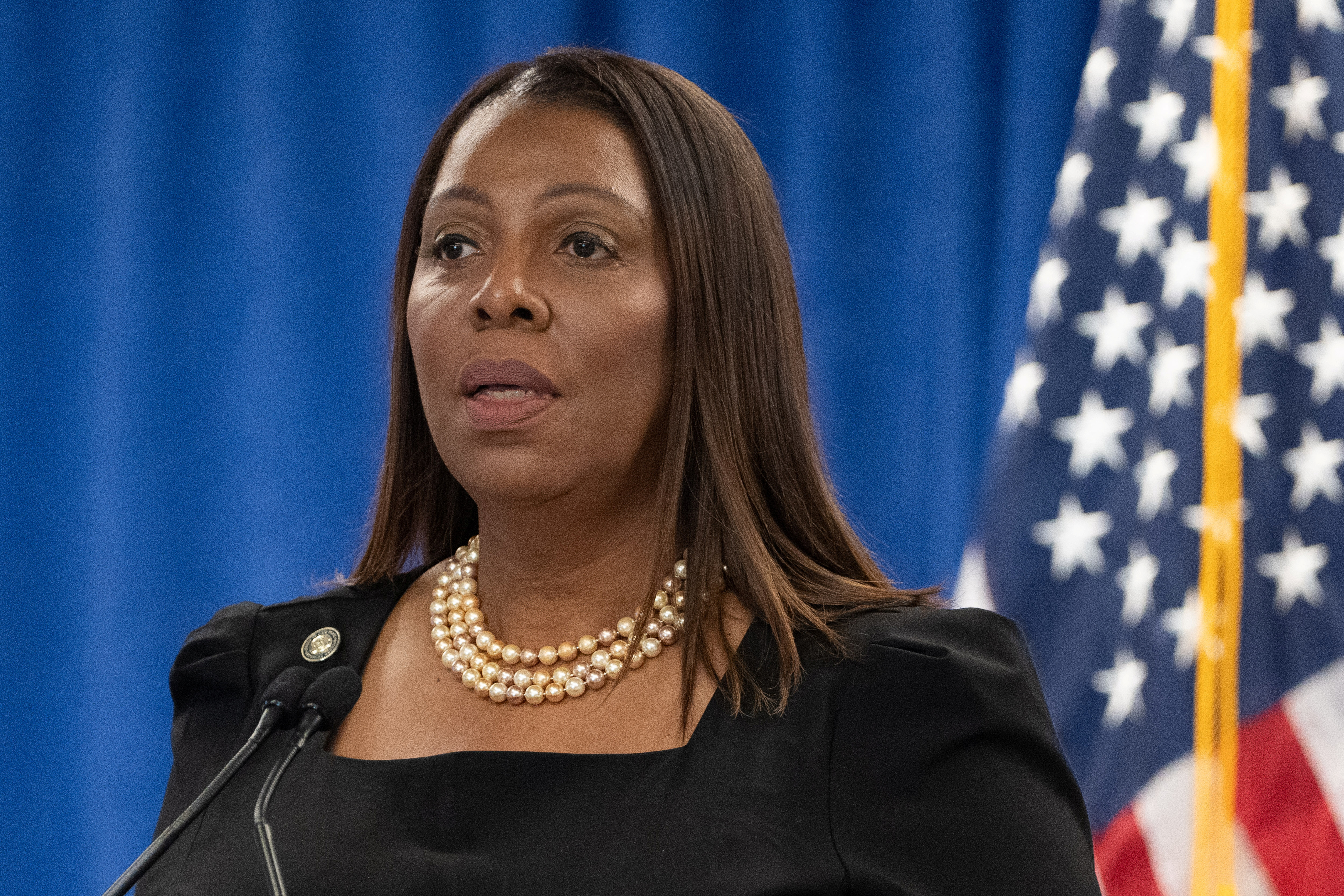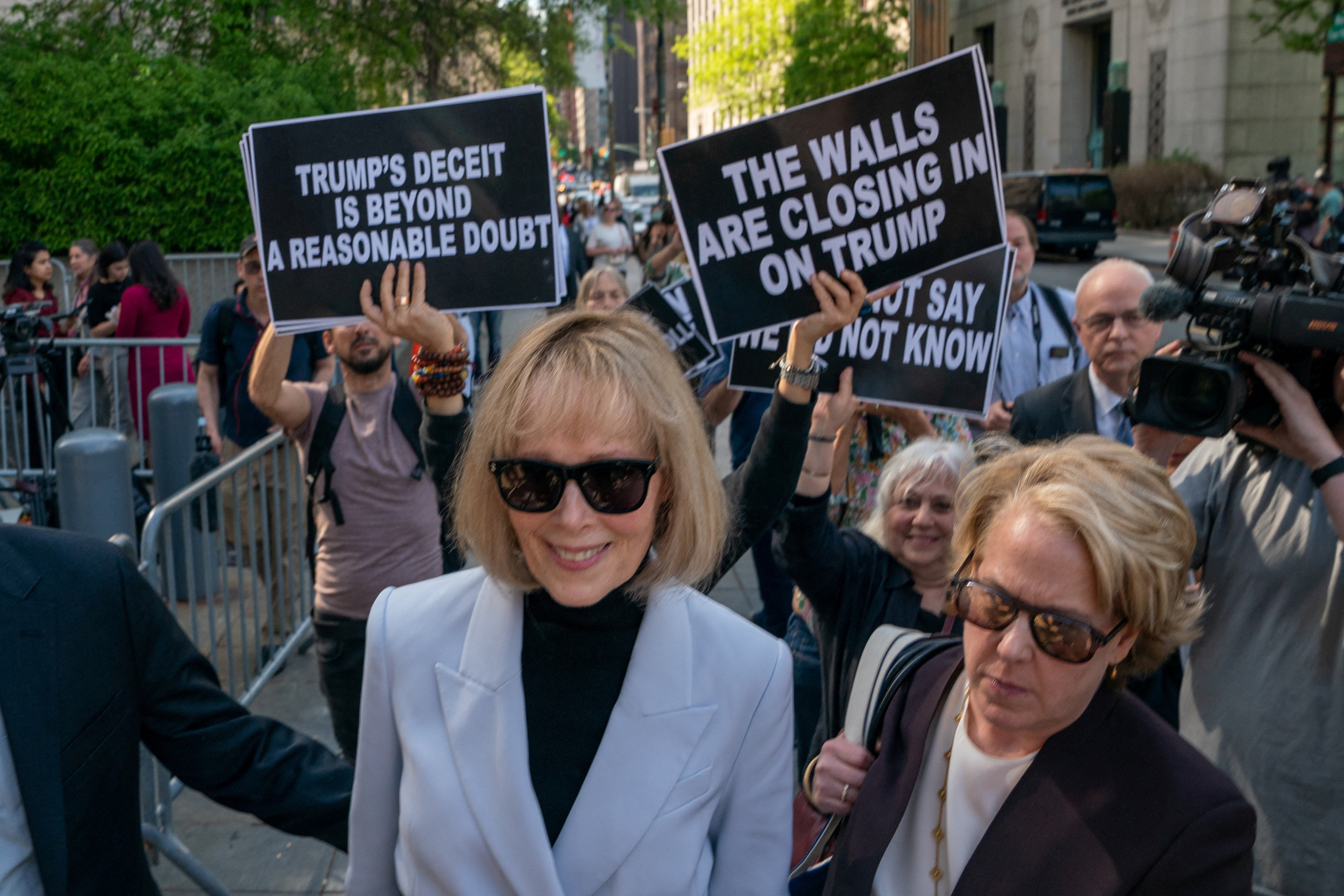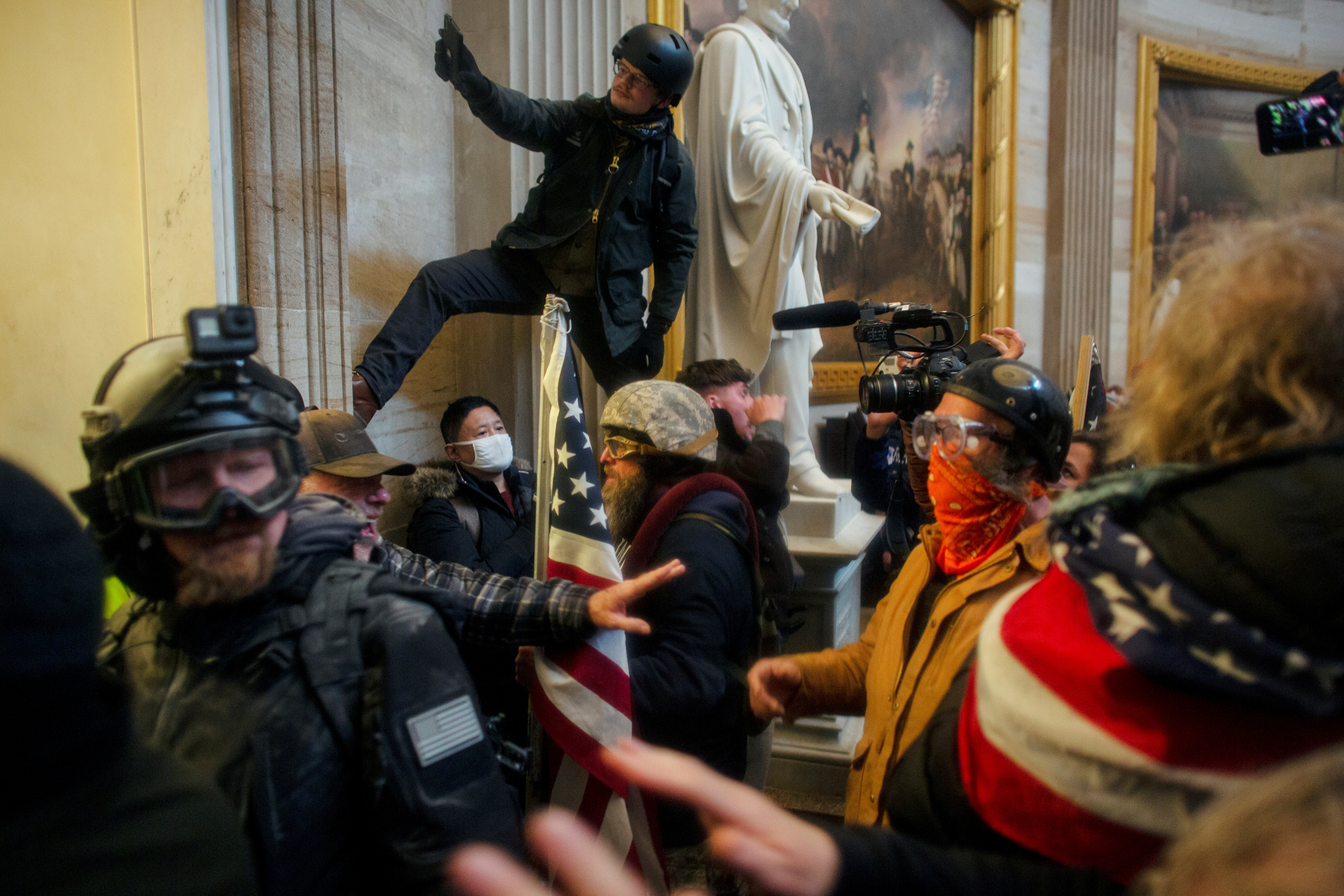The authoritarian threat to America
William Roberts, IBA US CorrespondentTuesday 26 March 2024

An explosion caused by a police munition is seen while supporters of US President Donald Trump riot in front of the US Capitol Building in Washington, DC, 6 January 2021. Reuters/Leah Millis
With Donald Trump on track to become the Republican Party’s nominee for US president, Global Insight considers what a second presidential term would mean for the rule of law in the US.
Donald Trump is on track to secure the Republican Party’s nomination for US president, even as he faces multiple criminal charges and civil complaints. It’s an unprecedented and, to many legal observers, alarming circumstance, as America looks towards its national elections in November 2024.
Commentators question how it’s possible that a politician who has demonstrated a clear disregard for law and the courts can be allowed to run for the highest office in the world’s oldest democracy. Further, there’s the significant question of whether a second Trump presidency would threaten the rule of law in the US, and indeed democracy itself.
‘The answer is definitely yes’, says Anne Ramberg, Co-Chair of the IBA’s Human Rights Institute Council. ‘The problem with Trump and other autocrats is not only that they do not respect democracy built on the rule of law. Trump and his like-minded use democracy to demolish the democratic state built on the rule of law.’
Assessing the courts as bulwark
The US Supreme Court recently rejected a bid in Colorado to prevent Trump from being on the ballot in the state under the 14th Amendment of the US Constitution, which prohibits anyone who has engaged in ‘insurrection’ from holding future office. In a unanimous decision, the Court reasoned that states cannot be allowed to bar candidates from federal office because the effect would be a patchwork that would disenfranchise voters nationally. Rather, it should be up to Congress and the federal judiciary to enforce the disqualification clause of the 14th Amendment. The Court didn’t rule on the question of whether or not Trump engaged in ‘insurrection’.
‘This is one of those rare, unanimous opinions. And that’s in part because of the concern for there being a patchwork of disenfranchisement if they were to rule in favour of Colorado. There was probably also a little undercurrent of the need to show some unity and not divide on political lines’, says Laura Prather, Scholarship Officer for the IBA North American Regional Forum and a partner at law firm Haynes Boone in Austin, Texas.

Attorney General Letitia James holds a press conference following a ruling against former US President Donald, New York City, US, 16 February 2024. REUTERS/David Dee Delgado
The Supreme Court will hear oral arguments in April on Trump’s claim that, as a former president, he is immune from prosecution for the events of 6 January 2021, when a mob of his supporters overran the US Capitol to block Joe Biden from taking power. Trump faces four felony charges in US District Court in Washington, DC, for his efforts to overturn the 2020 presidential election. He denies wrongdoing.
The trial was scheduled to start in March but has been delayed while the Supreme Court addresses Trump’s legally creative claim that as a former president he has absolute immunity. The high court has narrowed the constitutional question to: ‘Whether and if so to what extent does a former President enjoy presidential immunity from criminal prosecution for conduct alleged to involve official acts during his tenure in office’. Lower courts have already ruled that Trump was engaged in political activity, not official action as he claims, on 6 January 2021.
Trump and his like-minded use democracy to demolish the democratic state built on the rule of law
Anne Ramberg
Co-Chair, IBA’s Human Rights Institute Council
While the Supreme Court appears to be arrayed against Trump’s claim, its intervention serves to push a trial – if there is to be one – closer to November’s election. A ruling on Trump’s immunity claim wouldn’t be expected before May or June, meaning an actual trial could begin in July or August at the soonest part.’
Meanwhile, criminal cases pending against Trump elsewhere have also been delayed. In Florida, where Trump faces 40 felony charges related to his alleged mishandling of secret US documents, Judge Eileen Cannon has pushed the trial start date to 20 May and signalled that it’ll probably be delayed further. Trump has pleaded not guilty in the case.

E Jean Carroll, former US President Donald Trump rape accuser, departs Manhattan Federal Court as the civil case goes into deliberations, in New York City, US, 8 May 2023. REUTERS/David Dee Delgado
If Trump were to win re-election, he would be in position as President to order the Department of Justice to terminate both the election interference and classified documents criminal cases against him. Indeed, he has promised to go further by pardoning his supporters who rioted at the US Capitol on 6 January 2021, calling them ‘patriots’ and political ‘hostages’. And Trump has threatened to weaponise the Department of Justice and prosecute his political enemies if he regains power.
Elsewhere, the start of a criminal trial in New York stemming from hush money payments allegedly made by Trump to a former adult film star, Stormy Daniels, during the 2016 presidential campaign has been delayed and will now begin on 15 April. Trump has denied any relationship with Daniels and disavowed knowledge of the hush money scheme.
And in Georgia, a sweeping set of election fraud charges brought by Fulton County District Attorney Fani Willis related to allegations that Trump attempted to overturn the 2020 election have been delayed. A Georgia state court has been forced to wade through conflict-of-interest claims against Willis, who has admitted to a romantic relationship with one of the special prosecutors she assigned to the case. It’s unclear when the trial may start. Willis and the special prosecutor deny allegations that they have violated conflict-of-interest laws or have misused funds. Trump and his co-defendants, meanwhile, have pleaded not guilty to the charges.
‘Trump, particularly in his second nomination and second run at the White House, represents the biggest challenge to laws that apply to leaders in the United States that we’ve seen, certainly in living memory, and perhaps ever outside the context of the Civil War’, says Scott Anderson, a fellow in governance studies at the Brookings Institution and a senior fellow in the National Security Law Program at Columbia Law School.
‘We have a situation where the bigger questions are, what happens when Trump becomes the president if he is convicted, or if he’s still under indictment. There’s no real clear precedent or law that governs what happens in that scenario’, Anderson says. Worse, ‘he almost certainly will still be under indictment in some of these cases that have not gone to trial yet’.
What happens when Trump becomes the president if he is convicted, or if he’s still under indictment […] there’s no real clear precedent or law that governs what happens
Scott Anderson
Fellow in Governance Studies, Brookings Institution
Despite the delays in criminal proceedings, Trump has faced some measure of accountability in civil suits that have been brought against him. New York Attorney General Letitia James won a conviction against Trump and his organisation for inflating the value of his real estate holdings to New York banks and insurance companies. Trump is appealing the judgment. But his lawyers told a New York appeals court in March that he was unable to post the required bond covering the $454m penalty. The bond amount was later reduced to $175m.
In another case, Trump was ordered to pay writer E Jean Carroll nearly $90m in two verdicts for defamation and sexual assault. She successfully claimed in court that he sexually assaulted her in the changing room of a Manhattan clothing store in the mid-1990s. Trump has said he’ll appeal.
All this has left Trump scrambling to raise cash both to pay his legal bills and to fund his campaign for the White House. Trump has been hosting Republican billionaires for private dinners at his Mar-a-Lago resort, according to reports, and has taken over control of the Republican National Committee (RNC), the party’s fundraising arm, by installing his daughter-in-law, Lara Trump, as RNC co-chair.
The rise of US authoritarianism
While it’s early in the election campaign, polls show Joe Biden and Trump roughly even in public support. ‘There’s a lot to worry about Donald Trump and the Republican Party because the party has been taken over by Trump’s populist base. And it is a populism driven by anger and grievance against the existing system, which is our democratic system’, says Terry Moe, a professor of political science at Stanford University.
‘It’s a backlash by millions of people against social change that they find threatening’, he says. According to Moe, many of Trump’s supporters ‘think that democracy as it currently exists, including basic democratic norms and procedures, don't work and they yearn for a strong man who can act unilaterally on their behalf. They are intensely anti-system and very open to the kind of authoritarian behaviours that Donald Trump engages in’.
What Trump and his allies refer to as ‘the Deep State’ is actually the administrative agencies and programmes of the US government that have been created by Congress in law. Increasingly, over the past three decades, at least since the election of firebrand Newt Gingrich as Speaker of the House in 1994, some legislators have viewed politics as a form of war without blood. They have demonised opponents as enemies and sought to hobble the federal government by starving it of revenue, for example by deauthorising agencies.
To some extent, Congress, the courts and the existing body of US law have served as guardrails against attempts at deconstructionism. But what Trump is now promising, if he were to be re-elected, is to go much further by making law unilaterally rather than going through the usual democratic procedures in Congress.

Pro-Trump protesters storm the US Capitol to contest the 2020 US presidential election results by the US Congress, Washington, DC, 6 January 2021. REUTERS/Ahmed Gaber
Trump allies and a broad sweep of conservative political groups in the US have adopted what they are calling ‘Project 2025’ – a detailed agenda to fire tens of thousands of civil servants in the US bureaucracy and replace them with appointees loyal to Trump. It’s a deceptively radical plan that would push presidential power beyond its present legal limits to effectively sabotage government agencies and programmes from the inside, making it impossible for them to pursue their lawful missions.
‘We should take him at his own word, which is that a second term will be as he puts it, a moment of retribution, where he will again in his own words, rather gleefully lay claim to the powers of a dictator’, says William Howell, the Sydney Stein Professor in American Politics at the University of Chicago Harris School of Public Policy. ‘At a re-election, he will claim – and not unjustifiably – a popular mandate to push back against democracy, and small “d” democratic checks that are meant to limit the exercise of presidential powers. He’s been completely forthright about what he intends to do. This is not a case of a would-be autocrat hiding his ambition.’
International ramifications
One arena in which a second Trump presidency holds important ramifications for the rest of the world is international trade. Trump’s populist appeal makes trade, particularly with China, a potential target. Antitrade messaging is popular in US Rust Belt states such as Michigan, Pennsylvania and Wisconsin that are key to any electoral victory. ‘Let’s say Trump wins, he’s said flat out we can expect a continuation of the tariff battles that he started. We can expect a continuation of his focus on the bilateral trade deficit with China’, says Raj Bhala, Diversity Equity and Inclusion Officer on the IBA International Trade and Customs Law Committee and a professor of international trade law at Kansas University.
We can expect a continuation of the tariff battles that Trump started. We can expect a continuation of his focus on the bilateral trade deficit with China
Raj Bhala
Diversity Equity and Inclusion Officer, IBA International Trade and Customs Law Committee
The former president is threatening to impose a 60 per cent tariff on Chinese goods and revoke his country’s grant of Permanent Normal Trade Relations with the country. Trump can do neither legally without action by Congress, but it’s perceived that he’ll still try.
‘We can expect him to continue the Biden administration battle fronts on not only semiconductor chips, but also industrial policy where we give subsidies to build facilities like Intel was going to do in Ohio and Taiwan Semiconductor said they’ll do in Arizona’, Bhala says. ‘We know Trump loves onshoring, or at worst “friend-shoring”’ – a term defined by the World Economic Forum as a ‘trade practice where supply chain networks are focused on countries regarded as political and economic allies.’
We can also expect, believes Bhala, an increased use of presidential powers with respect to trade, to block or question imports and foreign direct investment. That’ll translate to more use of ‘national security’ as a rationale to protect US companies and industries using authority found in US trade laws. A Trump administration can also be expected to vigorously enforce anti-dumping and countervailing duty laws as well as anti-circumvention measures at the border. In truth, Biden would also be expected to employ ‘national security’ as a trade barrier.
Further, the US has increasingly used trade and economic sanctions to advance foreign policy and national security goals, says Audi Syarief, Chair of the IBA Export Controls, Sanctions and Anti-Corruption Subcommittee and a member of Gibson Dunn’s International Trade Practice Group in Washington, DC.
Regardless of who the next president is, we will probably ‘see an escalation’ in the use of sanctions, Syarief says. The difference is that there’s a greater chance that Trump, if elected, will impose sanctions through unilateral action rather than in multilateral coordination with allies. That can create ‘dissonance’ with the sanction regimes of other countries, Syarief warns. Unilateral sanctions ‘create challenges that can potentially also create tension between us and our allies to the extent we’re not aligned’, Syarief says.
William Roberts is a US-based freelance journalist and can be contacted at wroberts3@me.com
